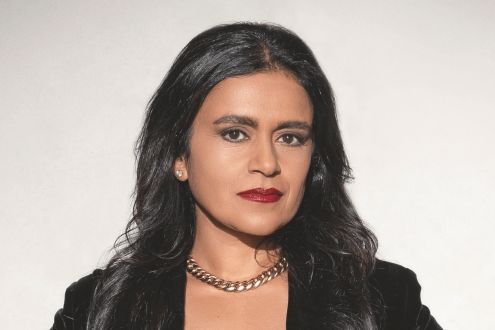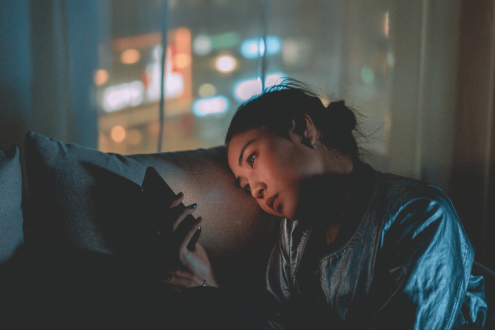Dr Alex George: ‘I’ve always felt different to others — now I know lots of people feel this way’
Dr Alex George talks to Psychologies' Hannah Stephenson about empowering young people to feel more positive, prioritising his own mental health, and why he believes communication is the key.
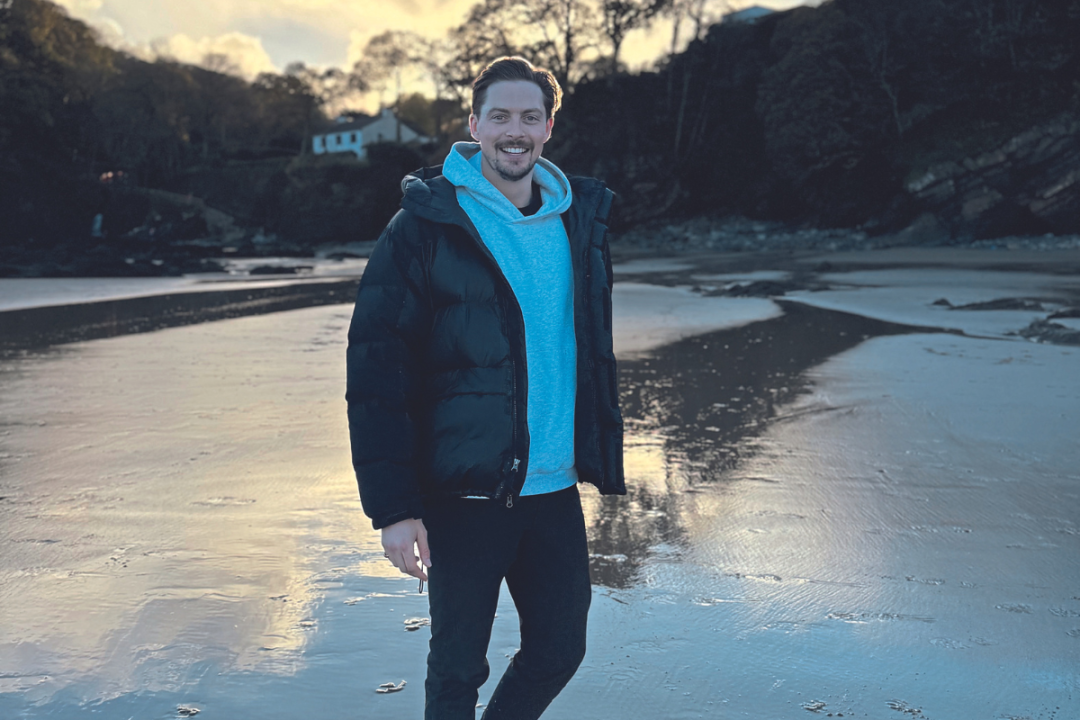
For Neurodivergence Awareness Week, Dr Alex George, the Government’s youth mental health ambassador, social media star, and author of bestselling self-help guides for adults and children, is reflecting on the measures he’s taken to look after his own wellbeing.
He has weekly therapy, gave up alcohol a year ago, takes medication for ADHD – which was diagnosed 18 months ago, and explains a lot about his struggles growing up – and is still grieving for his 19-year-old brother, Llŷr, who died by suicide in 2020, just as he was about to start medical school.
‘I’ve had to prioritise my own mental health above everything else, in order to be able to do everything else,’ explains the 32-year-old former Love Island star, who hails from Carmarthen, Wales. But he has a good team around him and puts his health first, he adds.
‘I have therapy, I get support, I prioritise sleep and exercise,’ says George, who also hosts the walking and wellness podcast Stompcast. ‘But there are ups and downs. I still go through difficult times.
‘The anniversaries are hard. Christmas is hard. We sit around the dinner table and, you know, my brother was 10 years younger than me and should be at that table. It’s very hard to sit there and not feel that pain. I don’t think that ever goes away.’
That terrible event was just one of the factors that sparked George’s determination to help people who are suffering with mental health issues, and in 2021, then-prime minister Boris Johnson appointed George youth ambassador for mental health, helping to shape mental health policy for young people.
George’s debut book for children, A Better Day (Wren & Rook, £9.99), a positive mental health handbook, was a Sunday Times bestseller and went on to win the Children’s Non-Fiction Book of the Year 2022. He has now written the follow-up, A Better Day Journal (Wren & Rook, £8.99), comprising fun and calming activities, exercises including mindfulness and visualisation, and a range of techniques to deal with anxiety, as well as a mood journal.
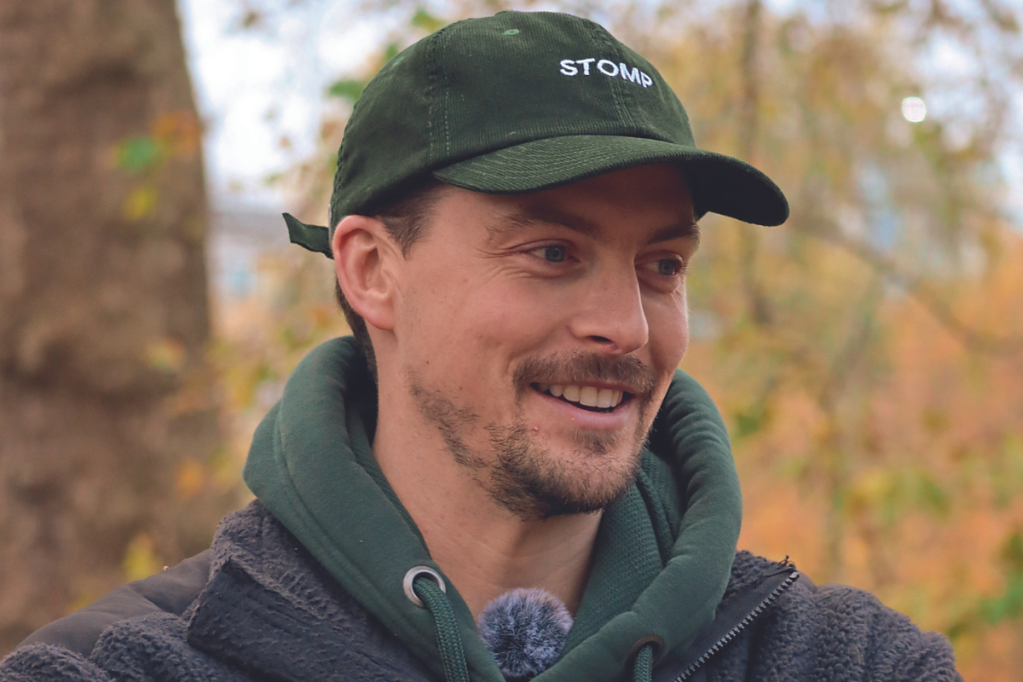
Despite this success, he says: ‘One of the things I try and tell people is that I’m not sitting here as an author or as an ambassador telling you that I have everything sorted, and do this and your life will be perfect, because in reality life is hard – things happen, and we have to learn how to deal with them.
‘My brother passed away almost four years ago now, and I went from yellow/green on the mental health spectrum straight down to that red end, trying to climb up while doing everything else.
‘There are times that I’ve struggled, and what I’ve found is that, for me, it’s been incredibly helpful actually sharing those experiences, which is why I talk about the highs and lows of mental health medications, and why I’ve spoken about my experiences with depression and ADHD, because I really want to help other people going through the same things. And it’s really helped me, too, because there’s a sense of community.’
His youth ambassador role is voluntary and takes up 80 per cent of his time – he raises enough money doing brand campaigns and business talks to generate an income to pay staff and give himself a wage. And it’s brought to his attention what he agrees is an epidemic for children’s mental health.
‘Recent figures from the Royal College of Paediatrics and Child Health show there are more than 400,000 young people waiting for support with mental health. A lot of people look at the data and ask quite sensibly, “Is this because we’re telling people to talk more, and people are opening up – is that contributing to those figures?” But even taking that into account, we are just seeing much higher prevalence of [mental] illness among groups of young people.
‘It’s easy to point the finger at social media, but while we live in a hyper-connected digital age, young people are more disconnected than ever; they are lonelier than ever before. With everything going on in the world right now, all those things are like an information overload for young people.’
Expectations and pressure on today’s youth is significant, as well as the pressures they place upon themselves with comparison culture, he adds. In the journal, he reveals to his young readers that he was a ‘world-class worrier’, encouraging them to write down their feelings, offering advice on how they can open up about their anxieties and turn negative feelings into positive ones.
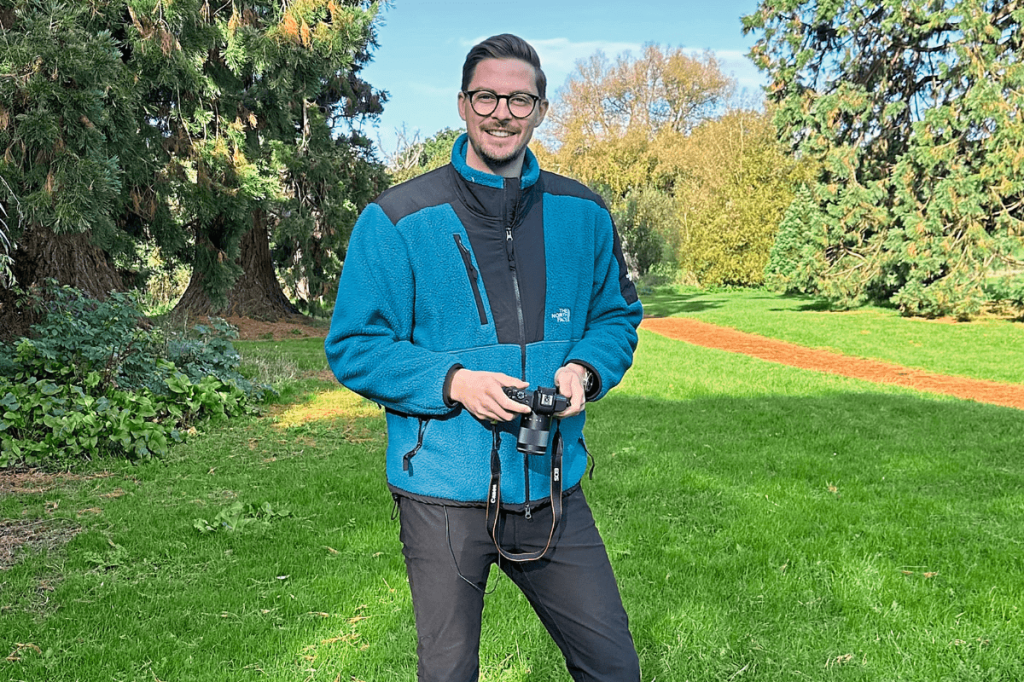
He knows the problems social media can create, but he also thinks there are times when it can be really powerful in a good way. ‘For instance, I’ve found so much support in the ADHD community online, which has probably been more helpful than any kind of professional website or information service that I’ve seen.’
George, who gave up being an A&E doctor two years ago – he couldn’t fit everything in – was initially sad when he got the ADHD diagnosis, because he has lived with it all his life. ‘I struggled a lot at school with attention, sensitivity, and connecting in relationships with others. The way that you interpret the world, and the way that your energy levels work is so different. If I’d have known this stuff, people could have supported me differently, but I could have also done X, Y and Z to change my life.’
The medication helps, but his lifestyle changes have also proved hugely beneficial, he explains. ‘The first thing I did was think about what I eat, the role of exercise, the importance of sleep and of routine with ADHD, and learning and understanding the psychology of ADHD. ‘Stopping drinking alcohol is one of the biggest things. If you drink alcohol with ADHD, you’re looking at someone who is likely to be more impulsive. Within just a few months of the diagnosis, I stopped drinking.’
He has a 24-hour rule, where if he is prone to react impulsively to a situation – it might be a purchase or a decision – he’s trained himself to think about it for 24 hours before going through with it. ‘The net change of all these things is that I’m calmer, and kinder and more compassionate to myself. I’m certainly a lot healthier, physically and mentally,’ says George.
‘I can’t explain how different my health is from a year ago,’ he adds. ‘I probably have a more positive outlook on the world, because I just understand the way that I see it better.’
‘Feeling isolated is an awful thing. I’ve always felt very different to others, but not really understood why, whereas now I know there are loads of people that also feel like this.’ Love Island, which George appeared on in 2018, seems like a lifetime ago, he agrees, but he doesn’t regret being on the show. ‘It’s part of why I’m doing what I do. You can’t change the past, and you are who you are today because of everything that’s happened.
‘I think that to regret is foolish,’ he adds. ‘If you were to remove something that has happened in the past, then you will alter your present.’
A Better Day Journal by Dr Alex George (Wren & Rook, £8.99) is out now
IMAGES: Alex George/PA
Read more: Radio 2 DJ Sara Cox on career struggles & her debut novel
